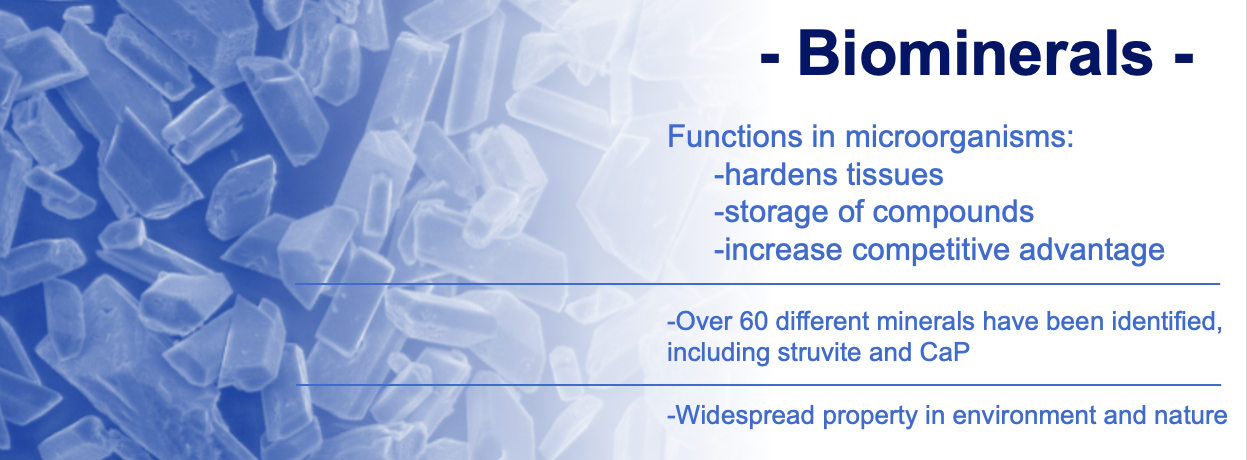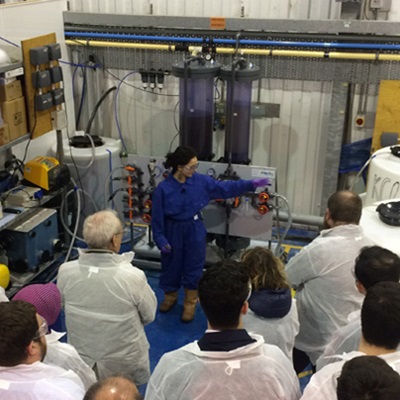
- DatesOctober 2019-present
- FundedEPSRC, Microvi and Severn Trent Water
This project looks to bridge the gap between nutrient recovery and sustainability in waste streams. Biological crystal formation of phosphorus compounds (e.g. struvite, magnesium phosphate etc) has been demonstrated to be a by-product of the metabolism of specific bacteria that can be found frequently in the environment. Compared with inorganic minerals, biologically-produced minerals (i.e. biominerals) are often characterised with more intricacy and morphological diversity, and are generally associated with biological functions such as structural support, mechanical strength, protection, storage etc.
The biomineralisation process plays an important role in the life sciences and now attracts growing interest in materials chemistry, cleaning technology and resources recovery. Biomineralisation can be exploited to recover nutrients from waste streams, with the end goal of proposing a complete process for the treatment of a variety of waste streams which recovers nutrients whilst meeting water reuse quality directives, sustainable development goals (reducing pollution, energy demand and sustainable fertiliser source for food security) and being a sustainable business for water utilities.
Above: Recovered struvite from wastewater through biological mineral formation.
Progress update
Selected bacteria have been shown to grow in municipal wastewater and remove up to 91% phosphate, leading to treated effluents with ≤1 mg/L in wastewater whilst concentrating the nutrients as salts that can be easily recovered by filtration. The biomineral formation bacteria have two major communalities: urease production and ability to grow at high pHs (>7-10).
Biomineral production was observed to take place through biologically-induced mineralisation and biologically-controlled mineralisation mechanisms. The studied bacteria can also grow in fresh urine, without the addition of external nutrients or sterilisation of the urine. This indicates that urine is a compatible growth stream and can allow the enrichment of target bacteria in mixed cultures. Initial experiments show a yield of up to 300 mg bio-struvite can be recovered per litre of fresh urine. The struvite collected showed a high purity, with additional potassium and calcium, making it a high-quality fertiliser for agricultural and domestic use.






